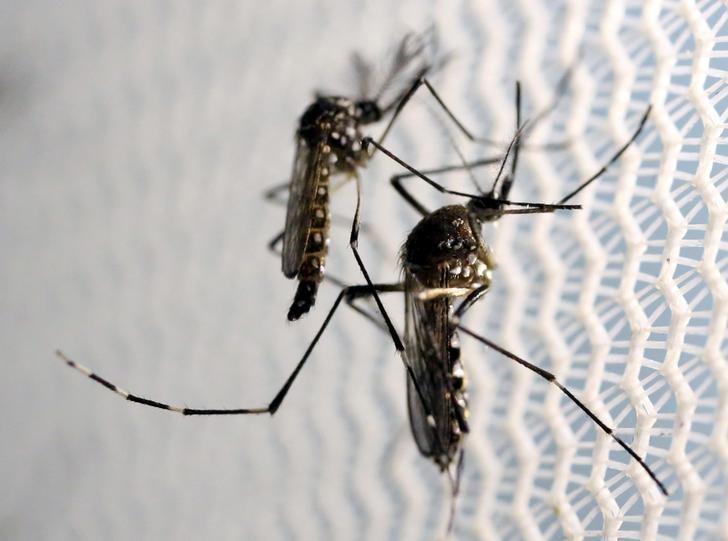You are here

Aedes aegypti mosquitoes are seen inside Oxitec laboratory in Campinas, Brazil, February 2, 2016.
REUTERS/Paulo Whitaker/File Photo
reuters.com - Reporting by Julie Steenhuysen; Editing by Dan Grebler - August 23, 2016
A report released on Tuesday shows in graphic detail the kind of damage Zika infections can do to the developing brain - damage that goes well beyond the devastating birth defect known as microcephaly, in which the baby's head is smaller than normal.
The current Zika outbreak was first detected last year in Brazil, where the virus has been linked to more than 1,800 cases of microcephaly, which can cause severe developmental problems.
Prior research has shown the Zika virus attacks neural progenitor cells - a type of stem cell that develops into different types of nerve or brain cells.
The latest research, published in the journal Radiology, draws from imaging and autopsy findings linked with confirmed Zika infections done on 17 infants and fetuses cared for at the Instituto de Pesquisa, in Campina Grande in the state of Paraiba in northeastern Brazil, where the infection has been especially severe.
(CLICK HERE FOR RELATED INFORMATION)



Comments
Yale team discovers how Zika virus causes fetal brain damage
news.yale.edu - by Bill Hathaway - August 24, 2016
Infection by the Zika virus diverts a key protein necessary for neural cell division in the developing human fetus, thereby causing the birth defect microcephaly, a team of Yale scientists reported Aug. 24 in the journal Cell Reports.
The findings suggest that Zika virus might be susceptible to existing antiviral drugs that may prevent disruption to the developing nervous system, said the researchers.
(READ COMPLETE ARTICLE)
CLICK HERE - Cell Reports - Zika Virus Disrupts Phospho-TBK1 Localization and Mitosis in Human Neuroepithelial Stem Cells and Radial Glia
In some genetic cases of microcephaly, stem cells fail to launch
scienmag.com - August 24, 2016
In a very severe, genetic form of microcephaly, stem cells in the brain fail to divide, according to a new Columbia University Medical Center study that may provide important clues to understanding how the Zika virus affects the developing brain.
The study was published August 24 in Nature Communications.
(READ COMPLETE ARTICLE)
CLICK HERE - Nature Communications - Severe NDE1-mediated microcephaly results from neural progenitor cell cycle arrests at multiple specific stages